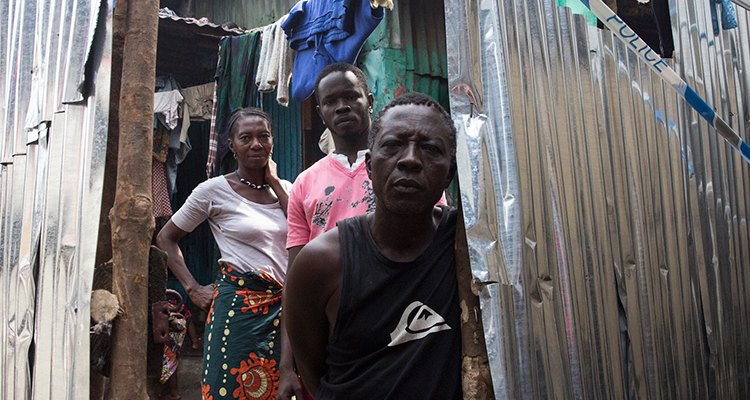By J Nastranis
NEW YORK (IDN) – Those in their late 20s but still living in poverty have been assured that the United Nations continues to have them on its radar. Though recent estimates show that despite significant gains since 2002 – the number of people living below the poverty line dropped by half – 1 in 8 people still live in extreme poverty, including 800 million people who do not have enough to eat.
An estimated 2.4 billion people have no access to improved sanitation, 1.1 billion people have no access to electricity and 880 million people live in urban slums. In fact opportunities continue to remain scarce for the world’s most vulnerable people – 59 million children of primary school age are out of school and the youth unemployment rate is 15 per cent, more than three times the rate of adults.
But marking the 24th anniversary of the International Day for the Eradication of Poverty (IDEP) on October 17, UN has underscored the need to recognize and address the humiliation and exclusion endured by people living in poverty.
This year marks the first commemoration of IDEP since the launch of the 2030 Sustainable Development Agenda and its 17 Sustainable Development Goals in January 2016. With this in view, UN Secretary-General Ban Ki-moon has stressed the need of recognizing that “prejudice and discrimination seriously impede our efforts” to “build a life of peace, prosperity and dignity for all”.
Ban said: “To end poverty, we must commit to respect and defend the human rights of all people and end the humiliation and social exclusion that the poor face every day.”
Wu Hongbo, the Under-Secretary-General for Economic and Social Affairs, added: “With its central pledge to leave no one behind, the historic and ambitious new 2030 Agenda recognises that development will only be sustainable if it is inclusive.”
“We need to change the course of human development from one characterized by exclusion, inequalities, conflict, and unsustainable patterns of consumption and production, to one that is more inclusive, equitable and sustainable.”
This is what the 17 Goals and 169 targets of Sustainable Development Goals (SDGs) agreed in September 2015 aim at.
The social inclusion of people living in poverty is not just a fundamental moral imperative; it can also help to reduce economic and social costs. Those who do not have access to education, land or the labour market cannot fully contribute to society or to the economy, said the UN Department of Public Information (DPI) in a media release.
“Exclusion has political costs as well, as it reflects and feeds social tensions and is at the root of many violent conflicts around the world. Exclusion further interacts with environmental risks because excluded individuals and groups, especially those living in poverty, frequently inhabit areas that are more vulnerable to natural hazards and disasters, and are disproportionately impacted by disasters as a result. Exclusion makes societies not only less cohesive, but also less safe and productive,” the DPI added.
The DPI points out that The observance of the International Day for the Eradication of Poverty goes back to October 17 1987. On that day, over a hundred thousand people gathered at the Trocadéro in Paris, where the Universal Declaration of Human Rights was signed in 1948, to honour the victims of extreme poverty, violence and hunger.
They proclaimed that poverty is a violation of human rights and affirmed the need to come together to ensure that these rights are respected. These convictions are inscribed in a commemorative stone unveiled on this day. Since then, people of all backgrounds, beliefs and social origins have gathered every year on October 17 to renew their commitment and show their solidarity with the poor.
Replicas of the commemorative stone have been unveiled around the world and serve as a gathering place to celebrate the Day. One such replica is located in the garden of United Nations Headquarters and is the site of the annual commemoration organized by the United Nations Secretariat in New York.
Through resolution 47/196 adopted on December 22, 1992, the General Assembly declared October 17 as the International Day for the Eradication of Poverty and invited all States to devote the Day to presenting and promoting, as appropriate in the national context, concrete activities with regard to the eradication of poverty and destitution.
The resolution further invites intergovernmental and non-governmental organizations to assist States, at their request, in organizing national activities for the observance of the Day, and requests the Secretary-General to take, within existing resources, the measures necessary to ensure the success of the Day’s observance by the United Nations. [IDN-InDepthNews – 17 October 2016]
Photo: Family in Sierra Leone. UN Photo/ Martine Perret
IDN is the flagship of International Press Syndicate.

